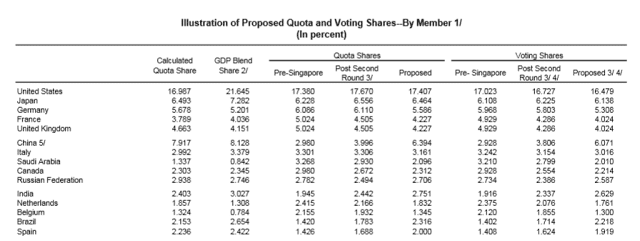IMF Governance Reforms: Finally, Maybe?
The refusal of the US Congress to accept a new and higher quota (money) to the IMF stymied governance reforms for five years. This has frustrated efforts to integrate the developing countries, especially the large ones, like China, better into the global economy. It may have also helped spur China to develop parallel organizations, like the Asian Infrastructure Investment Bank.
The omnibus spending and tax bill that looks likely to be approved by Congress and signed by Obama in the coming days includes a provision to accept the IMF reforms.




